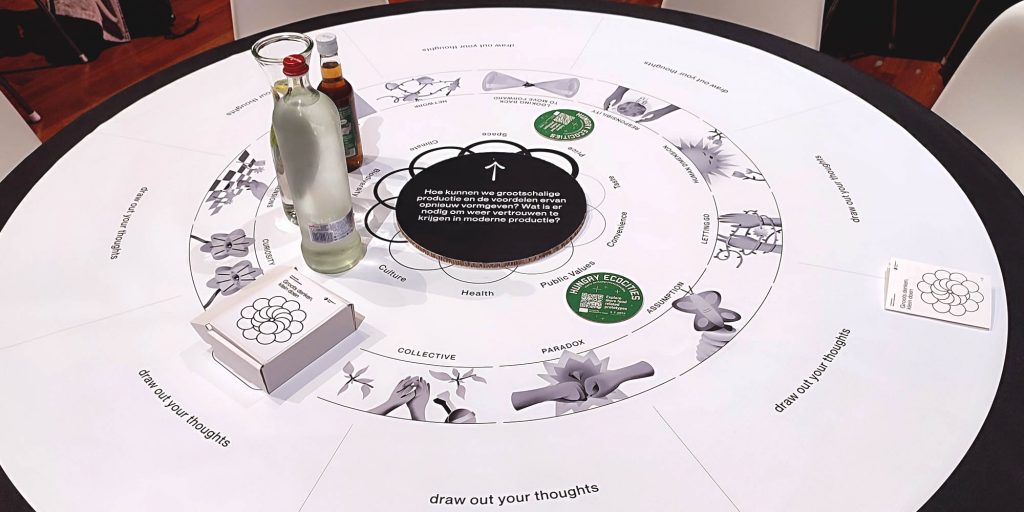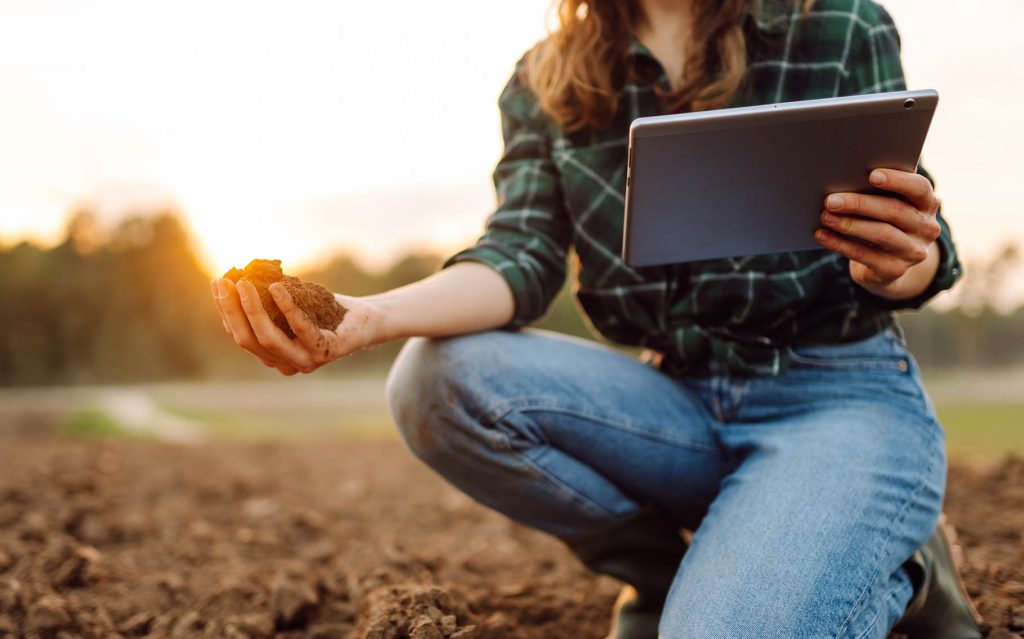The role of Scale in Food Production: Hungry EcoCities at the Embassy of Food’s Table Conversations during Dutch Design Week
The world behind our food is in dire need of change, but what is needed to make this change happen? The complexity of our food system can be overwhelming, and we often feel trapped in established habits and structures that make it difficult to break the status quo. Therefore, to talk about this, the Embassy of Food, an initiative by the Dutch Design Foundation, introduced a Table Conversations during the Dutch Design Week 2024 in Eindhoven. The Table Conversations brings designers, policy makers and representatives from the food sector together to share their thoughts and inspirations for harnessing the complexity and putting forward new ideas for change.
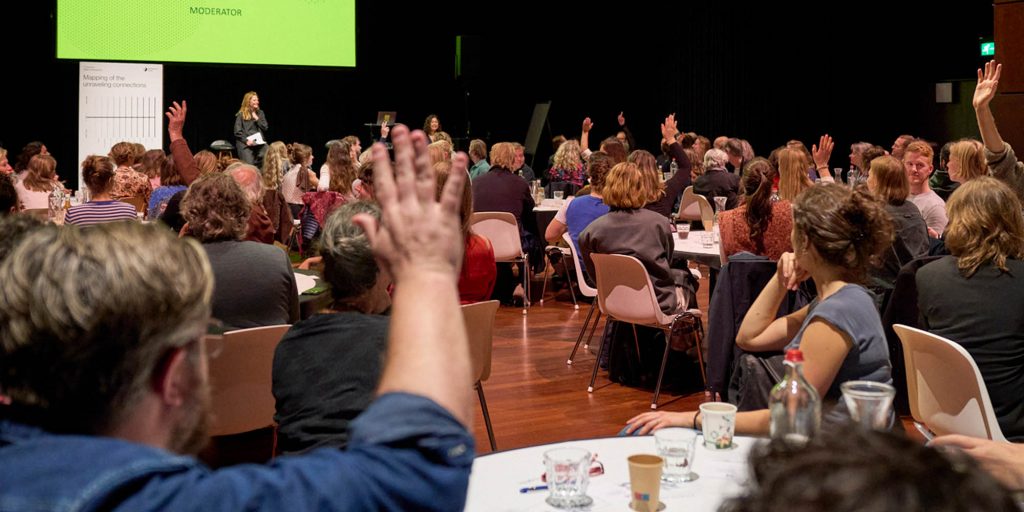
Table Conversations
In small groups, participants worked at 14 tables, each focusing on a question related to projects and initiatives that are already contributing to positive change. By sharing ideas and experiences, the goal was to develop new perspectives on the challenges currently facing our food system and to foster new collaborations.
Hungry EcoCities hosted one of such tables and posed the question on discussing the role of scale of food production. In a context where most contributions emphasize the importance of local and small scale, we wanted to see if we could also find more appreciation or consideration for larger scale production, and also seek its benefits. How can we redesign large-scale production to nourish without exploiting it? What is needed to bring large-scale production back into balance with people, nature, and the city? We provided context on the scale of food needed to feed a city of 1 million people daily and the importance of optimizing regional production and consumption for a sustainable food system.
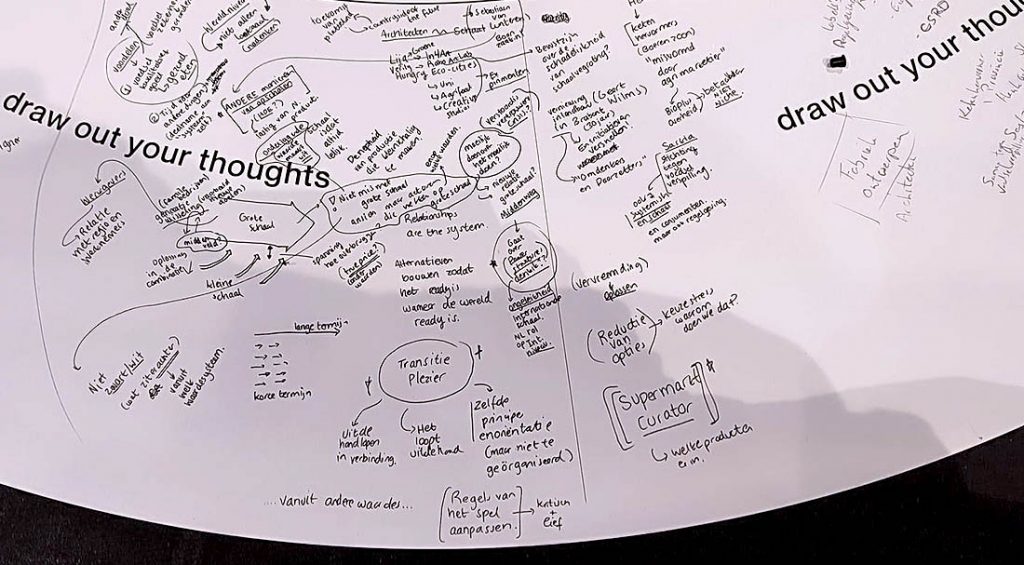
Discussions focused mainly on the issue of anonymity and the role of surplus production. Ideas that floated around the table included a transition to “Access to Enough”, the idea that we should limit the varieties of food available to emphasise the need, instead of the availability: Do you really need 20 different sorts of peanut butter on stock 24/7? Other ideas looked at the development of a supermarket curator: borrowing from branding, to specifically cater and curate specific supermarket offerings by known interesting protagonist from the food sector who could emphasise more healthy supermarket shopping or prioritize local production. Lastly, increasing public participation in large scale agriculture production to raise awareness for the working conditions, i.e. by developing public service-oriented working initiatives for all layers of society to contribute by working in them. The Table Conversation introduced us to a new network, with whom we will certainly have a follow-up discussion to fuel our vision elaboration
As part of the Embassy of Food and the exhibition “De schijf van vijf voor twaalf” the work of Genomic Gastronomy developed in Hungry EcoCities , MVPxFFF was exhibited and showed in the central Ketelhuisplein to the 40.000 visitors of the Dutch Design Week.
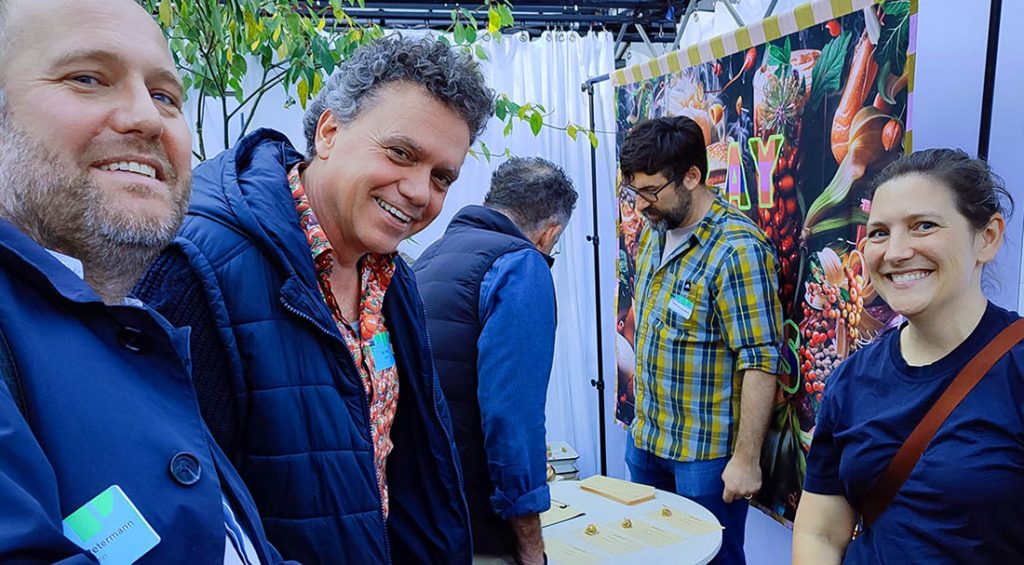
Hungry EcoCities was honored to participate in the Table Conversations—an innovative design session—and is grateful to the World Design Embassies and Barbara Vos for providing this valuable opportunity to connect with others striving for positive change in our food system. From Hungry EcoCities , Stephan Petermann contributed as the Vision Lead on Mega-Scales, and Lija Groenewoud van Vliet offered the art-driven methodological perspective.

The HungryEcoCities project has received funding from the European Union’s Horizon Europe research and innovation programme under grant agreement 101069990.
